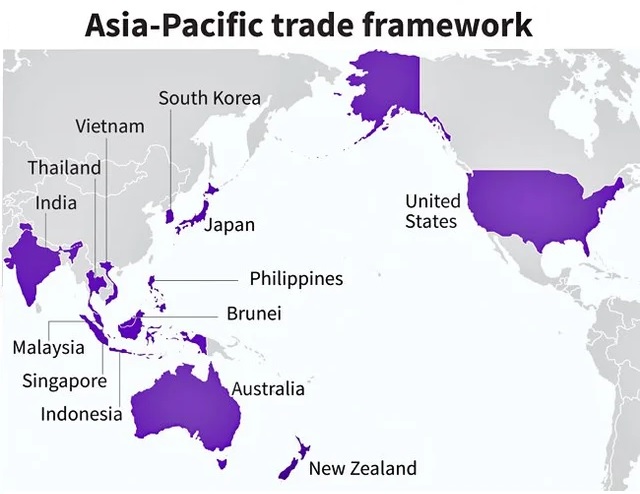There are apprehensions that the U.S.-driven Indo-Pacific Economic Framework for Prosperity (IPEF) would result in a complete stranglehold over the economic systems of the participating countries.
The 14 IPEF partners represent 40 % of global GDP and 28 % of global goods and services trade.

In 2019, India walked out from the Regional Comprehensive Economic Partnership (RCEP) involving China, Japan, South Korea, Australia, New Zealand and the 10-state Association of Southeast Asian Nations (ASEAN) grouping.
|
IPEF |
RCEP |
|
The bloc is led by USA |
The bloc is led by China |
|
The bloc represents 40% of world’s GDP |
The block represents 30% of the world’s GDP |
|
India is a member of the bloc |
India didn’t join the bloc but still has a window to join the bloc |
|
The block focuses on digital economy, supply chains, clean energy infrastructure, and anti-corruption measures |
The block focuses on negotiation on tariffs or market access |
|
The bloc has no tariffs |
The bloc has tariffs |
Quick facts
|
Regional Comprehensive Economic Partnership (RCEP) |
|
References